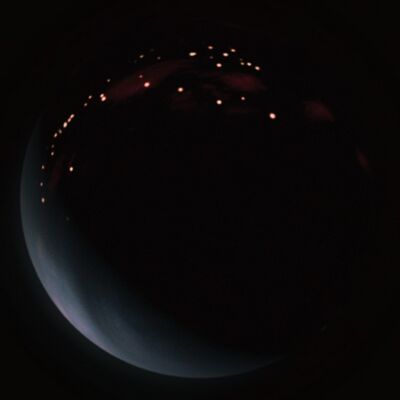Assisted Planetary Fusion Ignition (A1-0): Difference between revisions
Jump to navigation
Jump to search
No edit summary |
No edit summary |
||
| Line 2: | Line 2: | ||
Assisted Planetary Fusion Ignition, or APFI, is the process in which a Jovian or celestial body composed mainly of hydrogen and helium, but which does not meet the mass criteria for sustained nuclear fusion, is ignited artificially through the use of low yield nuclear weapons, prompting short-lived fusion reactions within its atmosphere. | Assisted Planetary Fusion Ignition, or APFI, is the process in which a Jovian or celestial body composed mainly of hydrogen and helium, but which does not meet the mass criteria for sustained nuclear fusion, is ignited artificially through the use of low yield nuclear weapons, prompting short-lived fusion reactions within its atmosphere. | ||
This is a rather primitive technology used for the obtention of energy from gas bodies without the use of stellification engines. | This is a rather primitive technology used for the obtention of energy from gas bodies without the use of stellification engines, typically employed by civilizations lower than the S1 level. | ||
Revision as of 23:05, 3 August 2023

Assisted Planetary Fusion Ignition, or APFI, is the process in which a Jovian or celestial body composed mainly of hydrogen and helium, but which does not meet the mass criteria for sustained nuclear fusion, is ignited artificially through the use of low yield nuclear weapons, prompting short-lived fusion reactions within its atmosphere.
This is a rather primitive technology used for the obtention of energy from gas bodies without the use of stellification engines, typically employed by civilizations lower than the S1 level.